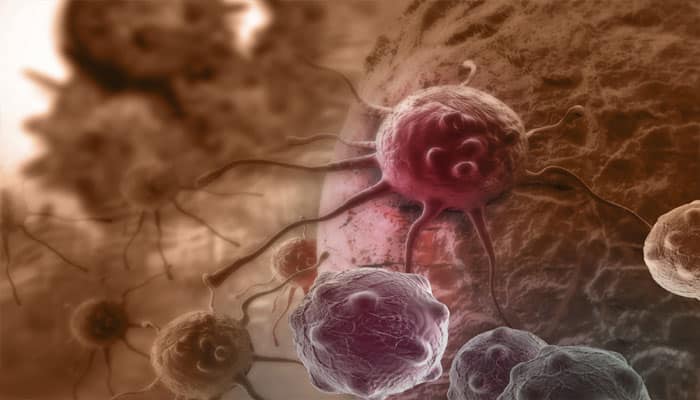Zee Media Bureau
Houston: Researchers have developed an experimental method that can kill cancer cells in two hours and may tremendously help people with inoperable or hard-to-reach tumours.
The method involving injecting a chemical compound, nitrobenzaldehyde, into the tumour and allowing it to diffuse into the tissue, may also benefit young children stricken with cancer.
The newly patented method to kill cancer cells has been developed by Matthew Gdovin, Associate Professor at University of Texas at San Antonio.
He then aims a beam of light at the tissue, causing the cells to become very acidic inside and, essentially, commit suicide.
With this method, Gdovin estimated, up to 95 per cent of the targeted cancer cells die withing two hours.
"Even though there are many different types of cancers, the one thing they have in common is their susceptibility to this induced cell suicide," Gdovin said.
Gdovin tested his method against triple negative breast cancer, one of the most aggressive types of cancer and one of the hardest to treat.
After one treatment in the laboratory, he was able to stop the tumor from growing and double chances of survival in mice.
Gdovin hopes that his non-invasive method will help cancer patients with tumors in areas that have proven problematic for surgeons, such as the brain stem, aorta or spine.
Chemotherapy treatments target all cells in the body, and certain chemotherapeutics try to keep cancer cells acidic as a way to kill the cancer. This is what causes many cancer patients to lose their hair and become sickly.
However, this method is more precise and can target just the tumour.
It could also help people who have received the maximum amount of radiation treatment and can no longer cope with the scarring and pain that goes along with it, or children who are at risk of developing mutations from radiation as they grow older.
"There are so many types of cancer for which the prognosis is very poor," he said.
"We're thinking outside the box and finding a way to do what for many people is simply impossible," Gdovin said.
The findings have been published in The Journal of Clinical Oncology.
(With Agency inputs)
















